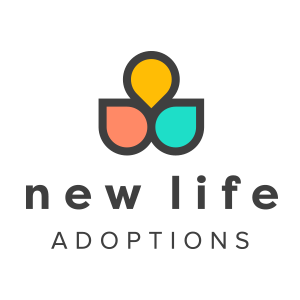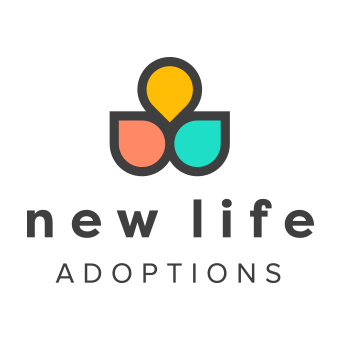When thinking about the word “adoption”, the phrase “ambiguous loss” is probably not the first thing that comes to mind. Adoption is a beautiful, loving and selfless choice, but we cannot deny that it involves loss for all parties involved. Birth parents, adoptive parents, and adopted persons may have conflicting feelings about the loss they experience in their adoption story, but learning about ambiguous loss may help put some words to these emotions.
Adoption is a beautiful, loving and selfless choice, but we cannot deny that it involves loss for all parties involved.
Ambiguous loss is a term, coined by Pauline Boss, defined as an “incomplete or uncertain loss.” She describes it in two ways. It can be a loss when a loved one is physically absent but psychologically present such as an adoption, divorce, or incarceration. It can also be a loss when a loved one is psychologically absent but physically present such as dementia or Alzheimer’s (2006). When it comes to adoption, there can be the added difficulty of society not recognizing or understanding the losses involved.
Birth Parents
Many birth parents, whether they have an open or closed adoption, continue thinking of their birth child. The child is often psychologically present but physically absent most of the time. The lack of daily interactions with their child and wondering “what might have been” are both ambiguous losses (Hooyman and Kramer, 2006). Even when birth parents feel very confident in their decision to make an adoption plan, these losses may still occur. Many people do not understand that even though birth parents choose adoption, because they want what is best for their child, there is still loss involved. Adoption can be seen as a “self-inflicted loss” where others may think, “you chose this, so why are you sad?” Therefore many birth parents feel that they have less permission, from both themselves and others, to grieve this loss (Hooyman and Kramer, 2006).
Even when birth parents feel very confident in their decision to make an adoption plan, these losses may still occur.
Adoptive Parents
Many families come to adoption because they have experienced the difficult journey of infertility, bringing a loss of their dream to have children biologically. Whether or not infertility is part of the journey, the loss of the biological bond with a child still applies and needs to be recognized. Adoptive parents, as well as many well-intended supportive family members or friends, may not recognize these losses because of the gains seen in adoption. Many people think, “I should just be happy,” but their lost dreams may always be psychologically present, even amidst the joys of adopting a child. These losses can be felt even if a strong and loving bond has been formed.
Whether or not infertility is part of the journey, the loss of the biological bond with a child still applies and needs to be recognized.
Adopted Persons
Those who were adopted may experience ambiguous loss in different ways. For some, the loss is the idea of what life would have been like if they had been raised by their birth family. If they have a closed adoption, or not much is known about their birth family, there is a loss in not knowing genetic and medical information. The birth family may be psychologically present but physically absent most of the time, and a sense of uncertainty or curiosity may be felt. Even if there is a strong attachment to the adoptive parents, it is normal to wonder about what could have been.
Even if there is a strong attachment to the adoptive parents, it is normal to wonder about what could have been.
Impact on Grief
When ambiguous loss is not acknowledged it can lead to unresolved grief. Pauline Boss shares that “those who do not talk about it” and “those who keep it a secret” struggle with ambiguous loss the most (2006). Boss suggests that one way to acknowledge this loss is to talk about it and to help make sense of it. “If we cannot make sense out of ambiguity, nothing really changes. We merely endure” (Boss, 2006). Making sense of it could help construct a new meaning of the loss, but each person needs to find their own meaning for their unique situation.
What can you do?
Share your story
Some people who have experienced ambiguous loss find that sharing their story can help bring meaning to the loss they are feeling. Boss gives this as an example, saying that by sharing your story, you’re not trying to change your experiences but find meaning by helping others (2006).
Recognize Important Events
Situations that involve ambiguous loss do not often have a ceremony or ritual associated with them to bring closure. Boss shares the importance of altering a celebration or ritual instead of just canceling it as this can help with unresolved grief (2006). This may mean creating new ways to recognize and acknowledge important events or anniversaries such as the day of placement, the anniversary of a miscarriage, a birthday, or other life events or milestones. Lighting candles, saying prayers, getting together with a trusted person, taking a day off for recreation, writing a letter, or making a favorite meal can all be ways to recognize these events.
Acknowledge Your Feelings
It is OK to hold and feel two conflicting emotions at the same time. Birth parents can be confident in their decision to place their child for adoption and still be sad about what life could have looked like if they had chosen to parent. It doesn’t mean they regret their decision or they don’t think the adoptive family is doing a good job of raising their child. Adoptive parents can be grateful for and love their adopted child yet still grieve the dreams of having a biological child. It doesn’t mean they love their child any less. Adopted persons can wonder about their biological family and what life would have been like with them and still love their adoptive parents. These feelings are OK and more importantly, they are normal! As complicated as it may feel, this mix of feelings is a part of each adoption story.
As complicated as it may feel, this mix of feelings is a part of each adoption story.
Seek Additional Support
If you have experienced similar feelings, we want you to hear that what you are feeling is valid, real and important. You are not alone in processing your feelings. Our spirituality can also help make sense of things. Resting in God’s truth and promises for us; trusting that He will work our situation for our good and His glory. If you are looking for further support, there are resources that can help. Our Post Adoption Services are always available to you, or you can find a support group or other resources through organizations like Bellis, MNAdopt, or BraveLove.
References
Boss, P. (2006). Loss, Trauma, and Resilience: Therapeutic Work with Ambiguous Loss. New York: W.W. Norton & Co.
Hooyman, N. R., & Kramer, B. J. (2008). Living Through Loss. New York: Columbia University Press.




